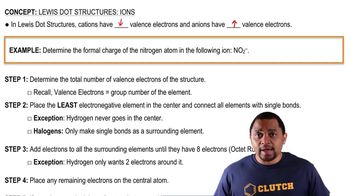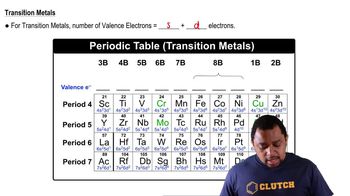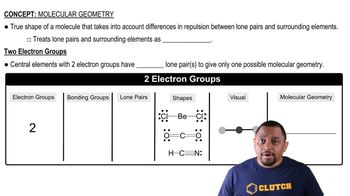Here are the essential concepts you must grasp in order to answer the question correctly.
Lewis Structures
Lewis structures are diagrams that represent the bonding between atoms in a molecule and the lone pairs of electrons that may exist. They use dots to represent valence electrons and lines to represent bonds between atoms. Understanding how to draw Lewis structures is essential for visualizing molecular geometry and predicting the behavior of molecules.
Recommended video:
Lewis Dot Structures: Ions
Valence Electrons
Valence electrons are the outermost electrons of an atom and are crucial in determining how atoms bond with each other. The number of valence electrons influences the molecule's reactivity and stability. For example, phosphorus (P) has five valence electrons, which play a key role in forming bonds in molecules like PH3.
Recommended video:
Transition Metals Valence Electrons
Molecular Geometry
Molecular geometry refers to the three-dimensional arrangement of atoms within a molecule. It is influenced by the number of bonding pairs and lone pairs of electrons around the central atom. In the case of PH3, the geometry is trigonal pyramidal due to the presence of one lone pair on phosphorus, affecting the molecule's shape and properties.
Recommended video:
Molecular Geometry with Two Electron Groups



